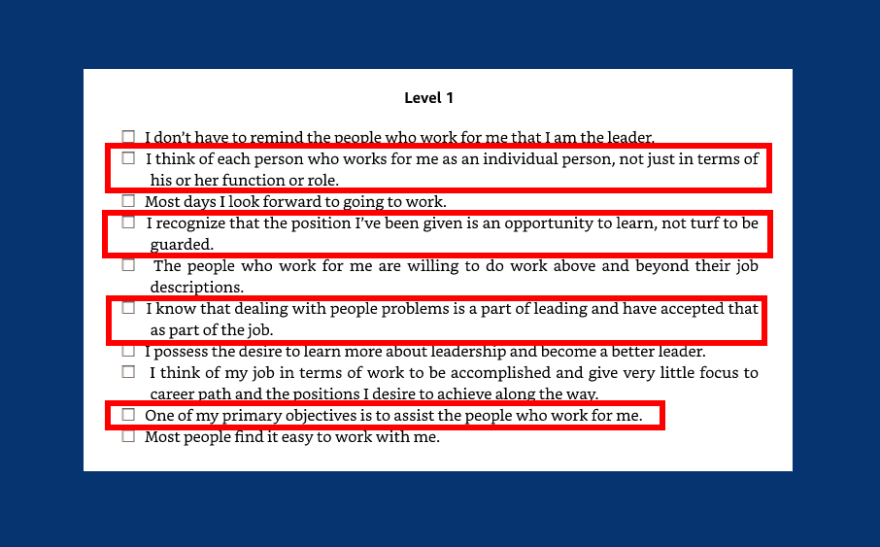Yes, this is a rebuttal to Quiet Quitting.
And, yes, I'm attempting to make up a term that pushes the idea of Quiet Quitting off the employee and back onto Management.
Maniacal Management Defined
I typed "maniacal definition" into DuckDuckGo and got the following returned by wordnik:
I was amazed how applicable the term is because I was just attempting to create a new term that uses alliteration (like Quiet Quitting) which will help get to the root cause of quiet quitting.
Let's focus on :
- extreme mental derangement
- excessively enthusiastic
- wildly irresponsible
Extreme Mental Derangement
Twenty-five years ago I was working as a Software Quality Assurance employee for a BigCorp making a mere pittance (A meager monetary allowance, wage, or remuneration - see wordnik again). I was making $30K
An coworker left the company, became a manager of QA at another large company and called me to recruit me.
"We'll pay you $49,900 in salary to come work with us," she said. That's a 65% pay increase!!
I went to my manager who had his boss in his office and said, "I have an offer, but I'd actually like to stay. Will you match the offer?"
BigCorp Manager turned to his boss and said, "No, but I wouldn't leave just for money. If it were me, I wouldn't take it." This is mental derangement.
His boss looked at him and said, "Are you crazy? Of course he has to take it. He has a family to take care of and he can't turn that down."
They wouldn't counter-offer and I left for the $$$.
That is not inspiring and not only led to QQ (Quiet Quitting), but led to AQ (Actual Quitting).
How Much Was That Manager Making?
To really understand how crazy that manager was to say such a thing you have to consider how much that manager was making. He was driving a Lexxus, taking vacations to exotic places, wearing nice clothes and living life large.
I was scraping by, driving a piece of garbage trying to pay for basic expenses for family, but he couldn't see that I needed a higher living wage. Maniacal Management.
This Same Boss - Did He Value Growth?
At my previous Annual Review I had posed a question to this same boss. What is the last book on leadership or management that you read?
He paused.
"Hmmm...I haven't read anything since college."
(At least 15 years in the past for him).
I've worked in IT for over 30 years and none of my managers have been any different. I've asked them to read specific books, such as the amazing book, Linchpin: Are You Indispensable? by Seth Godin, but they none of them would.
Excessively Enthusiastic
They are so excited to get you to do things that they need done. They'll have long meetings and pizza parties and create charts that are supposed to "energize the team". But it all falls flat, because they are just using you like any other resource. They are just using you like a chair. When one of the wheels breaks off they'll just shove you out the door.
Get Your Own Skills
That's why you must get your own skills. You must be a Linchpin. You must be indispensable. So good they cannot get rid of you; cannot move projects without you.
Don't Wait For Them
Don't wait for someone to give you power, instead take power.
That sounds a little aggressive, but I'm saying:
- Learn everything about your role and how to best carry out your work
- Learn everything about the business you're working in and be a SME (subject matter expert)
- Engage with your work on every level
- Always be helpful to every coworker, no matter their level or role
If you do all these things you will be a powerful worker and Quiet Quitting won't even be an idea for you.
Keep in mind that you're doing these things for you. If you do all those things they will translate to every job you move to and transform you into someone who can do work at any level.
The Best Workers
The best workers understand the company (not just the code) so well that they can fill any role (Software Development, Quality Assurance, DevOps, Tech Support, Product Management, Product Owner, etc.)
When you can fill any role then you have a Super Power that makes you invaluable. Look around and discover how much you can learn from the company you are currently at. When you transcend a statement like,
That's not in my job description
and you transform it into
We are a team and this Software Product we are creating is a team effort that I want to create to make the Users' life easier
then you'll be unstoppable.
But, keep in mind, no manager is ever going to inspire you to do that. They don't have it in their mind right.
Why Do You Want To Succeed?
You have to know why you want to succeed. You want to succeed because life is better when you are occupied with something that challenges you.
You want to succeed because you can build a better life for yourself and your family.
The Difficult Stuff
But you have to face the difficult things to succeed. You have to embrace the things that you don't want to do.
The Challenge
The real challenge here is to :
Stop thinking some manager or mentor will come along and inspire you to do work that you care about.
Managers Don't Really Do Much
Understand that for the most part, most managers just baby-sit.
Managers themselves don't understand that they can go "beyond their role" and do more. They don't take power and understand that they themselves could transform into Leaders.
They don't work on their own careers for the most part so why would we expect them to help us in ours?
The Five Levels of Leadership
The fantastic book by John C. Maxwell, The Five Levels of Leadership provides the following test for Level 1 Leaderhsip.
This is bottom of the ladder, where a person has just been given the title of "Manager".
However, over the 30 Years of IT career, I've evaluated each of my managers and there has only been one who has ever passed this test to become a Level 2 leader.
Test Your Manager
Take a moment and think in perspective of your manager and consider each of the statements in the list. I'm guessing that the ones I've highlighted in red are ones that they are missing. Managers, unfortunately, are rarely leaders. They are just a title, a positional authority.
That is a very strong clue to why there is Quiet Quitting.
Let's Wrap This Up With a Poll
- Do you have an Annual Review at work? - Most likely you do, but it is generally uninspired and just a yearly activity
- Do you have a list of yearly goals which are generated from the Annual Review? - Very often there are goals, but are they connected to anything? Very often they are not.
How can we grow if we don't have goals and some way to determine if we've hit those goals?
We Consider That The Work of Management
We consider the setting of goals to be the work of management but it really isn't.
Take Ownership
When management creates goals for us, we are uninspired by them because we don't own them.
Do More, Learn More, Grow
We must own our goals. We must create goals that we are attached to, which will empower us to do more, learn more, grow more.
Freedom
The ability to take on any challenge is the greatest freedom of all. In order to take on any challenge we need a tools.
Ability To Take On Any Role
We need strong tools that allow us to take on any role within our company an be successful.
Learn To Inspire Yourself
So, what we learn is that the Mentor or Amazing Manager is not going to just show up one day.
You must learn to inspire yourself.
Learn to take the business apart and put it back together.
Learn everything about every role within the company you are working.
Investigate how to make everything work better.
Be your own mentor and you'll never fall for Quiet Quitting, because then quitting would only be quitting yourself.
This is the way.
Start Now
Now, go read Linchpin and The Five Levels of Leadership and grow.
Think About Roles
Next, consider each role in your company (or in the Software Development life cycle) and think about the challenges of that role and how you can help your coworkers in those roles.
Success Accelerates
With just these small simple changes in your work you'll find that your success accelerates at a great speed and you'll never quiet quit.







Top comments (0)